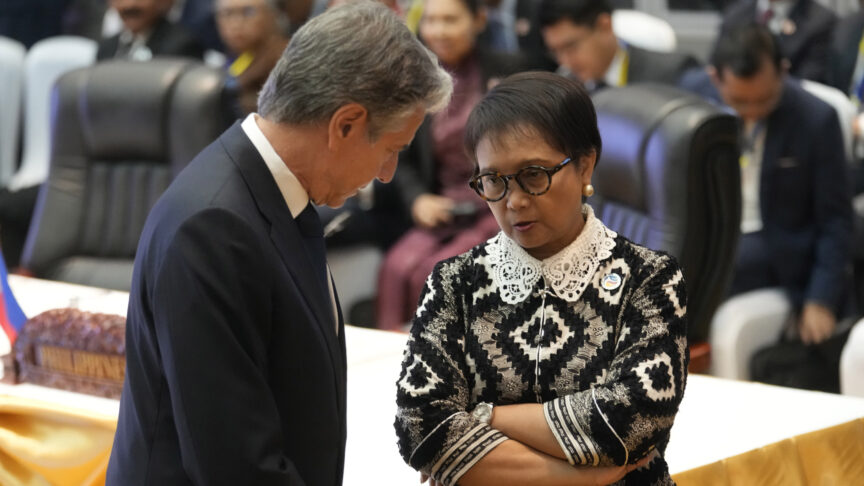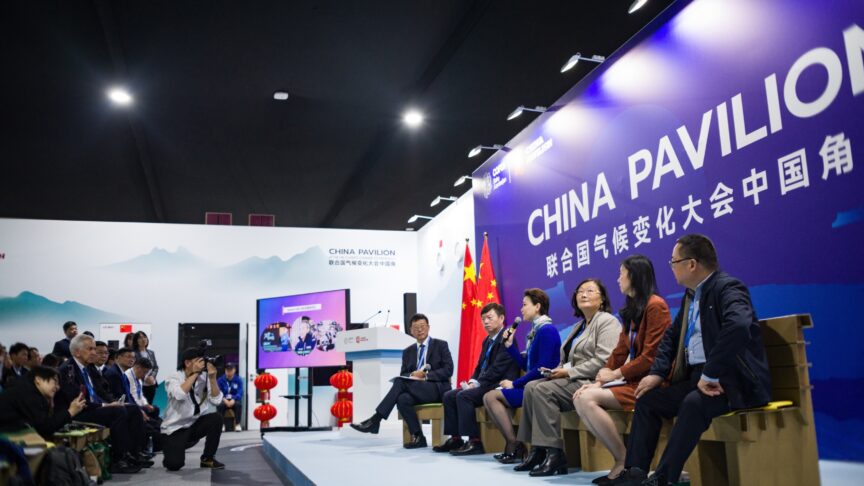More than just a climate deal: The Australia-Tuvalu Falepili Union treaty and the EU’s potential contribution to the Pacific
The Falepili Union treaty prioritises Tuvalu’s urgent concerns about climate change. As the EU looks to deepen relations with partners in the Indo-Pacific, it should tailor its offers to regional priorities
In early November, on the sidelines of the Pacific Islands Forum in the Cook Islands, Australia’s prime minister Anthony Albanese and Kausea Natano, his counterpart from Tuvalu, a Polynesian archipelago, announced that they would elevate their bilateral relationship to a more integrated partnership known as the Falepili Union. Under the Falepili Union treaty, Australia commits to Tuvalu’s safety – including through a special visa arrangement for Tuvalu citizens to migrate to Australia, as well as by uplifting its development assistance and support for Tuvalu’s climate adaptation efforts. In return, Tuvalu will mutually agree with Australia any security and defence partnerships it concludes with other states. Both countries also commit to protecting and promoting each other’s collective security and sovereignty.
For Australia, the partnership is a way to help pull Tuvalu away from China’s growing influence in the Indo-Pacific. Security and defence partnerships include those on policing, border protection, cyber security, and critical infrastructure (such as ports, telecommunications, and energy infrastructure). Natano has downplayed the importance of Tuvalu’s obligation to consult Australia on its partnerships, saying that the treaty only requires his country to approach Australia first on military issues, but the clause gives Australia veto power over any security arrangement Tuvalu may be tempted to conclude with other nations.
Despite the distance, the Falepili Union treaty did not go unnoticed in Europe. European officials have focused on the significance of the agreement in the context of the climate crisis, arguing that it highlights the need for all countries to drastically reduce carbon emissions. In the media, the treaty has sometimes been referred to as a strategic victory by Australia over China, though little if any attention has been paid to the actual security provisions. But the partnership holds important lessons about how to engage with potential partners in the Indo-Pacific.
For Tuvalu – much like other South Pacific countries – climate change, not China, constitutes an existential threat
As an archipelago of nine low lying islands with their highest point just 4.5 metres above sea level, for Tuvalu – much like other South Pacific countries – climate change, not China, constitutes an existential threat. The Falepili Union illustrates the fundamental gap between the threat perceptions of big countries in the Indo-Pacific such as Australia, whose concerns are primarily strategic, and those of smaller and more vulnerable ones such as most South Pacific islands. These countries operate at a sub-strategic level, with their location their only real strategic asset, but one which larger countries cannot ignore.
The Falepili Union treaty responds to Tuvalu’s vulnerability to the effects of climate change. It is not the first programme facilitating mobility in the Pacific. New Zealand’s “Pacific Access” visa category and Samoa quota resident visa enable 2,400 people to move from the Pacific to New Zealand on a permanent basis every year. The United States offers similar possibilities to eligible citizens of the Marshall Islands, Federated States of Micronesia, and Palau to live and work in the US indefinitely. However, the Falepili Union treaty is the first agreement to link mobility explicitly to climate change, allowing migration in anticipation of climate-related disasters. It is also meant to help Australia deepen its ties with other Pacific countries by easing the critique that it should be embracing stronger climate action.
The response by Pacific nations has so far been positive. Unsurprisingly, the US, New Zealand, and even Taiwan, have expressed their support for the initiative. But the Falepili Union has also been publicly backed by the prime minister of the Cook Islands, Mark Brown, and, more surprisingly perhaps, by the foreign minister of the Solomon Islands, Jeremiah Manele, whose country signed a controversial security partnership with China in 2022. There have also been speculations in diplomatic circles that Kiribati and Nauru might sign similar agreements with Australia in the future, with Australia’s foreign minister Penny Wong declaring that the Falepili Union “does signal how we are prepared to approach our membership of the Pacific family”. Taneti Maamau, Kiribati’s president, though, has so far been noncommittal about the possibility of concluding a similar treaty, saying that Kiribati has its “own strategies and [its] own initiatives”. No Pacific island wants to be drawn into a great power rivalry involving China, nor be coerced in any way by Beijing’s opponents.
The treaty illustrates that the struggle with China for influence in the Indo-Pacific is not just about military power, but also about the capacity to assuage the anxieties of the Pacific states regarding their own survival and future. The Falepili Union should thus inspire Europeans to tailor their partnerships according to the needs and interests of countries in the region and provide them with attractive offers for cooperation. As Europe looks for ways to deepen partnerships in the region, it will find that many of the smaller island states’ own priorities overlap with Europe’s aims. It would thus make strategic sense for the European Union to prioritise climate adaptation projects, which also have the benefit of enabling knowledge transfers to and from Europe. It can use the EU strategy for cooperation in the Indo-Pacific and the EU-Pacific Green-Blue Alliance, funded through the Global Gateway to achieve these objectives.
In addition to support designed to address the effects of climate change on island nations, the EU can also contribute to capacity building for monitoring, policing, and enforcement. Island nations in the South Pacific have limited capacities in these fields, which are crucial for guaranteeing their maritime security. The EU’s decision to extend CRIMARIO, an EU-funded initiative to help partners better govern their maritime spaces by enhancing Maritime Domain Awareness through information sharing initiatives, capacity building, and training is one example of what the EU can propose. Technical and financial capacities would offer South Pacific island states additional options to choose their partners and alleviate the pressure resulting from being caught in great power rivalry.
Such an approach would also allow the EU to promote the “inclusive and effective multilateral partnerships” that are at the heart of its Indo-Pacific strategy. None of these steps bring absolute guarantees against an increased and potentially hostile Chinese presence in the region, but they nevertheless help reduce the strategic and political space in which Beijing can operate.
The European Council on Foreign Relations does not take collective positions. ECFR publications only represent the views of their individual authors.



